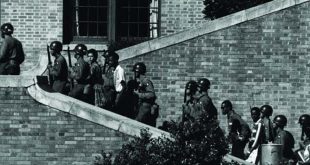Some years ago I was a guest at an elegant dinner party in Belgrade attended by a number of the city’s elite and some members of Serbia’s literary establishment. This elegant salon was in a grand Belle Époque building near Kalemegdan that had somehow survived both the War and Communism.
Now I was there in a dichotomy of a quandary. On one hand I was American as can be, having lived in New York since 1949 raised on hot dogs, Coca Cola, baseball and rock and roll. On the other hand, I was a Serb born some four blocks away on Francuska Ulića, a native son. This dichotomy separated me from the others present. I was at once the brash, abrasive “ugly American”, as well as the educated kulturni native son, truly a volatile mix with this crowd.
The Balkans breeds a strange mixture of xenophobia and provincialism. Minor local artistic or literary achievements are triumphs to be celebrated. These small victories loom large in the national psyche and are moments of shared national identity. But they foster unreasonable competition with more established, economically dominant countries and markets. The locals have adopted national identities, reveled in national myths, such as Serbia’s Kosovo Polje, inventing largely fictitious national histories.
It seems that Balkan countries, Serbia included, are forever playing series of cultural World Cup Soccer matches, but always runner ups, never champions, cheered on by the blare of cheap plastic vuvuzelas.
This mind set is complicated by history. Ex-Yugoslavia and the Balkans are on the cusp of the fault between the tectonic plates of the East, the Ottoman Empire, and that of the Christian West. The friction between these historical forces has resulted in centuries of violence, destruction and war. All that was achieved was soon destroyed by the next conflagration, the next war, the next revolution. Ivo Andric’s The Bridge on the Drina is history writ small of one monument’s survival over 400 years. But we have recently witnessed the wanton, pointless destruction of the Stari Most in Bosnia’s Mostar Town. What remains today in the Balkans are shadows of what was, or what might have been.
At the dinner the conversation turned to America’s shameless consumer driven culture, the appalling spectacle of Madonna [then in high vogue, today it would be Lady Gaga] appearing on stage as a whip cracking dominatrix and the dearth of culture in the United States.
 They scoffed that the #1 non fiction bestsellers three years running were two books by that bigot and blowhard Rush Limbaugh and a cookbook, while fiction was dominated by crime novels. They laughed that stupid Ceausescu had allowed “Dallas” to be shown on Romanian TV, hastening his downfall, while ignoring that an equally vapid “Tropical Heat” was being shown on four TV stations in Serbia, while economic sanctions were destroying their country. Thrown in for good measure was their disdain for strip malls and fast food joints dotting New Jersey highways. Denizens of the Balkans have this love/hate relationship with the United States. While they mock and denigrate, they are the first to put on jeans, listen to and mimic Ice Cube’s rap music and build would be Donald Trump Casinos. And that is why there are more Greeks in Astoria, New York than there are in Athens, Greece.
They scoffed that the #1 non fiction bestsellers three years running were two books by that bigot and blowhard Rush Limbaugh and a cookbook, while fiction was dominated by crime novels. They laughed that stupid Ceausescu had allowed “Dallas” to be shown on Romanian TV, hastening his downfall, while ignoring that an equally vapid “Tropical Heat” was being shown on four TV stations in Serbia, while economic sanctions were destroying their country. Thrown in for good measure was their disdain for strip malls and fast food joints dotting New Jersey highways. Denizens of the Balkans have this love/hate relationship with the United States. While they mock and denigrate, they are the first to put on jeans, listen to and mimic Ice Cube’s rap music and build would be Donald Trump Casinos. And that is why there are more Greeks in Astoria, New York than there are in Athens, Greece.
Foreigners inevitably comprehend and experience the United States through the prisms of New York, Miami, Los Angeles, the movies and television. For all their glories these metropolitan areas are false icons of America’s past values and culture. New York was built as the gateway to America but after the World War II it became the gateway to the world, something it was never intended to be. The charm of leafy brownstone neighborhoods, Brooklyn Heights and Carnegie Hill, gave way to monstrosities, Third Avenue’s glass and faux marble “Lipstick” Building, Fifth Avenue’s crass Trump Tower and the grossly extravagant Four Seasons Hotel. The gritty, down at the heels Broadway of Guys and Dolls morphed into grotesque neon obsessed Times Square, competing with Tokyo’s lurid Ginza. Los Angeles, that soulless la-la land, is a Disneyland inhabited by transplanted domestic and foreign idiots. Miami’s South Beach is a Latin American nightmare reeking of marijuana, snorting cocaine. The rest of Miami is a favela, home to exploited illegal immigrants. And the less said about television and the movies the better.
Back then, almost twenty years ago, I staunchly defended America. Dismissing the bastard cities of America, I pointed with pride to Savannah, Georgia. Governor Oglethorpe’s city plan of 1733 with its 24 squares of parks was surely more civilized that Baron Haussman’s 1852 vision for Paris. Look at the 1820 Isaiah Davenport House with its cantilever staircase. Revel in the Greek revival architecture of the 1839 Sorell Weed House. The Mercer House, whose construction was interupted by the Civil War, is a gem. Savannah is home to the Telfair Museum of Art, since 1886 the oldest public museum in the South. And don’t forget the Savannah College of Art and Design.
True, this culture was built by the fruits of black slave labor. But the Balkans have their own sorry version: serfs, peasants and kulaks galore. Read Savva Dimitrevich Purleskii’s A Life under Russian Serfdom [1877], written in exile while in Romania. America’s cultural legacy was saved from destruction due to constant peace and prosperity, while the Balkans and Serbia were laid waste by war and revolution.
“Not my problem, if you guys can’t control your own destiny” pompously said the American “I”.
I then suggested a visit to Litchfield, Connecticut, a town they had never heard of. Slavery did not taint this small New England village nestled in the Berkshire Foothills. It prospered financially and culturally without forced labor. Like many other colonial towns it boasts a park like green at its very center. The stately homes, no palaces they, with traditional black shutters, still line North and South Streets, tree lined boulevards almost as wide as the Champs-Élysées, evidence of architectural sophistication and economic success dating back to the Revolution. In 1784 a lawyer, Tapping Reeve, started the Litchfield Law School without public funding, the first such school in the United States, and well ahead of the University of Belgrade’s in 1808.
I went on extolling the virtues of American culture in the East, the West, and in places in between, fueled no doubt by numerous glasses of a good red wine. This heated cultural exchange ended, as it often does, as a draw with bruised sensibilities and egos on both sides.
 At one time there was an American culture, pure, honest and unique. Of course it borrowed and built upon its European roots, but it was imbued with a truly distinctive character. Mark Twain, O. Henry and Stephen Crane have very little in common with Charles Dickens, Jane Austen or Sir Walter Scott, except for the English language. You would never confuse Walt Whitman’s Leaves of Grass or Carl Sandburg’s Chicago [“Wicked…City of the Big Shoulders”] with Lamartine’s Le Lac. All that John Singer Sargent, Winslow Homer and Norman Rockwell have in common with Edgar Degas, Henri de Toulouse–Lautrec and Sir Leslie Ward [“Spy”] are brushes and paint. Monticello, Thomas Jefferson’s vision, and a New England colonial are homes, but homes not to be confused with a Normandy Château or a Tuscan farmhouse. George Gershwin’s melodic ode to America, Rhapsody in Blue [a “musical kaleidoscope of America, of our vast melting pot, of our unduplicated national pep, of our blues, our metropolitan madness”, in his very own words] and Woody Guthrie’s hymns to it, This Land is Your Land and Roll on Columbia, Roll On have no foreign counterparts.
At one time there was an American culture, pure, honest and unique. Of course it borrowed and built upon its European roots, but it was imbued with a truly distinctive character. Mark Twain, O. Henry and Stephen Crane have very little in common with Charles Dickens, Jane Austen or Sir Walter Scott, except for the English language. You would never confuse Walt Whitman’s Leaves of Grass or Carl Sandburg’s Chicago [“Wicked…City of the Big Shoulders”] with Lamartine’s Le Lac. All that John Singer Sargent, Winslow Homer and Norman Rockwell have in common with Edgar Degas, Henri de Toulouse–Lautrec and Sir Leslie Ward [“Spy”] are brushes and paint. Monticello, Thomas Jefferson’s vision, and a New England colonial are homes, but homes not to be confused with a Normandy Château or a Tuscan farmhouse. George Gershwin’s melodic ode to America, Rhapsody in Blue [a “musical kaleidoscope of America, of our vast melting pot, of our unduplicated national pep, of our blues, our metropolitan madness”, in his very own words] and Woody Guthrie’s hymns to it, This Land is Your Land and Roll on Columbia, Roll On have no foreign counterparts.
But no more, America’s culture has fallen victim to globalization, today’s scourge. American culture was once the expression of a national identity ever striving for an elusive ideal. Having lost its industrial base, America is now creating a culture for export. The ever elusive ideal of the past has been morphed into the lowest common denominator for all.
Making cultural sausages is a messy business and cultural sausages ain’t pretty. “American Culture” is now manufactured for English skinheads, Russian hoodlums, South Korean idiots, Chinese peasants, illiterate Dubai millionaires, the hoi polloi of the world. Now it’s all about McDonalds, Dancing with the Stars, The Real Housewives of Orange County and Lady Gaga.
I ruefully write these observations today from the vantage point of my American “I” persona. My Belgrade dinner partners were right and I was wrong.
Deyan Ranko Brashich, an attorney, Op-Ed columnist, resides in New York City. “Letters from America,” a collection of essays, will be published January, 2013. His contact and blog “Contrary Views” is at www.deyanbrashich.com.
 Печат – Лист слободне Србије Политички недељник, актуелна политичка дешавања, друштво, свет, култура.
Печат – Лист слободне Србије Политички недељник, актуелна политичка дешавања, друштво, свет, култура.








For example, our primary school students still can easily add fractions, while the American college students for already quite a while believe that 1/ 2 + 1/ 3 = 2/ 5. A committee led by the Nobel Prize winner Prof. Glen Sikorsly in California had recently made it a requirement that all students entering universities were able to demonstrate their ability to divide 111 by 3 without a calculator – something that most of them simply don’t know.. This requirement was later contested in High Court as anti-constitutional.
DRB: The locals have adopted national identities, reveled in national myths, such as Serbia’s Kosovo Polje, inventing largely fictitious national histories.
Me (IK): Just like in every single land on the planet. The American phrase “Print the Legend” has become legendary itself.
And the Kosovo myth inspired all the Balkan Slavs. It was alive in Croatia perhaps no less than in Serbia. Mestrovic devoted a whole sculpture cycle on the theme of the Battle of Kosovo. He was especially inspired by it in Paris. You can find about this in Rebecca West.
DRB: It seems that Balkan countries, Serbia included, are forever playing series of cultural World Cup Soccer matches, but always runner ups, never champions
IK: Except when they win Nobel prizes for literature, top awards at Cannes, etc. etc.
DRB: This mind set is complicated by history. Ex-Yugoslavia and the Balkans are on the cusp of the fault between the tectonic plates of the East, the Ottoman Empire, and that of the Christian West.
IK: Perhaps a little anachronistic…
DRB: The friction between these historical forces has resulted in centuries of violence, destruction and war.
IK: Apparently no more than in the rest of Europe, or the Middle East, or Indochina, or you name it.
DRB: Los Angeles, that soulless la-la land, is a Disneyland inhabited by transplanted domestic and foreign idiots.
IK: Insulting your compatriots shouldn’t win you brownies.
DRB: True, this [American] culture was built by the fruits of black slave labor. But the Balkans have their own sorry version: serfs, peasants and kulaks galore. Read Savva Dimitrevich Purleskii’s A Life under Russian Serfdom [1877] written in exile while in Romania.
IK: Yes, “Balkan”! How did you manage to bring that up as an example of Balkan version of seerdom? For the most part, serfdom on the Balkans was mostly imposed from elsewhere: Istanbul, Vienna, Moscow. Not so in the U.S. of A.
Posle 70 dana provedenih u USA, mog muza su pitali ljudi zasto se vratio u Srbiju. Odgovorio je da se njemu nimalo ne svidja americki nacin zivota. Pitali su ga, sta mu se to nije dopalo u Velikoj Americi? Kako je on doziveo Ameriku, kad je izabrao Srbiju? Dva Amerikanca vode treceg, a ni kucici im ne laju, bio je najjaci utisak koji je poneo iz USA i tako je zakljucio da to nije mesto za njega. Vi cete bolje znati koliko je bio u pravu, obzirom da ste veci deo zivota tamo. Kultura je i eugenika i GMO i osiromaseni uranijum i ispiranje mozga i ….. Mi nismo usvojili veci deo tog kulturnog modela i toplo se nadam da i necemo, nikada. Zasto vama treba da nas usrecujete svojom kulturom? Kad vam je tako dobra, uzivajte u njoj, nema potrebe da bilo koga usrecujete na silu. Ako Bog da izdrzacemo i ovo uterivanje srece koje ste nam jos spremili, hvala unapred.